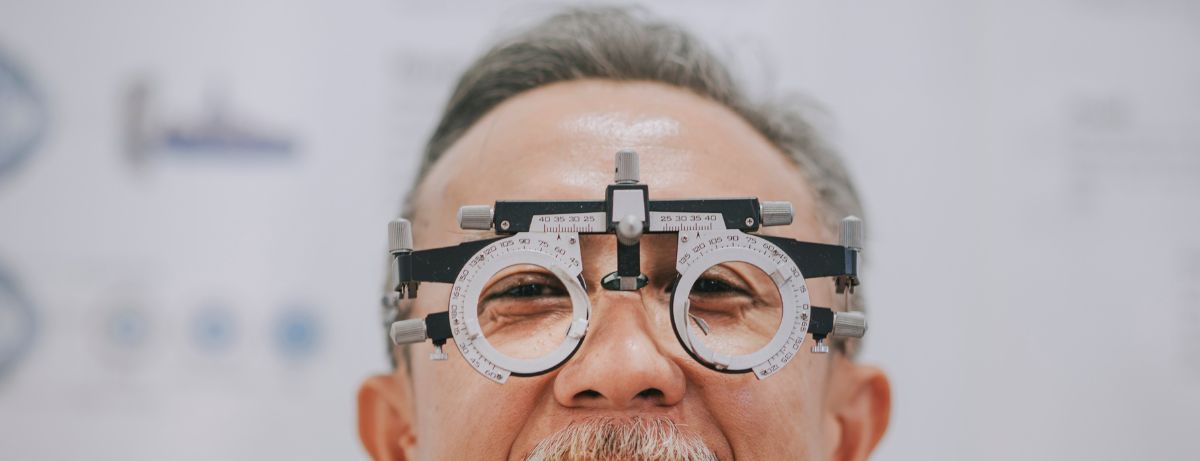Essential Eye Care for Diabetes

Most people who have diabetes suffer nothing more than minor eye disorders related to the disease. However, they do have a higher risk for blindness than other people, according to the American Diabetes Association (ADA).
If you have diabetes, you can take steps to reduce your risk for vision loss or blindness. Diabetes can cause the following eye disorders:
Glaucoma. Diabetes can lead to glaucoma, or increased pressure within the eye that over time damages the optic nerve, the ADA says. People with diabetes are 40 percent more likely to suffer from glaucoma than people without diabetes. The longer a person has diabetes, the greater the risk for glaucoma. The risk for glaucoma also increases with age.
Cataracts. A cataract is a clouding of the lens of the eye. People who have diabetes are 60 percent more likely to develop this condition than people who don’t. People with diabetes also are more likely to develop cataracts at a younger age, the ADA says. Cataracts in someone with diabetes tend to progress more quickly than in someone without diabetes.
Retinopathy. Diabetic retinopathy is a general term for disorders of the retina caused by diabetes. Diabetic retinopathy comes in two forms: nonproliferative and proliferative, the ADA says. In nonproliferative retinopathy, the most common form, capillaries balloon and form pouches. Nonproliferative retinopathy doesn’t usually cause vision loss and needs no treatment at this stage. However, the capillary walls may lose their ability to control the passage of substances between the blood and the retina. As a result, the retina becomes swollen, and fatty deposits form within it, the ADA says. If this swelling affects the center of the retina, the problem is called macular edema, and vision loss can result.
In some people, retinopathy progresses after several years to a more serious form called proliferative retinopathy, in which the blood vessels become so damaged that they close off, the ADA says. In response, new blood vessels start growing in the retina. These new vessels are weak and can leak blood, blocking vision. The new blood vessels also can cause scar tissue. After the scar tissue shrinks, it can distort the retina or pull it out of place, causing retinal detachment.
Your retina can be badly damaged before you notice any change in vision, and most people with nonproliferative retinopathy have no symptoms, the ADA says. Even with proliferative retinopathy, people sometimes have no symptoms until it’s too late to treat the condition. That’s why it’s crucial for people with diabetes to see an eye care professional every year for eye examinations.
Steps to take
The longer you have diabetes, the more likely you are to have nonproliferative retinopathy, the ADA says. Almost everyone with type 1 diabetes will eventually develop it, as will most people with type 2 diabetes. But proliferative retinopathy, the form of retinopathy that destroys vision, is far less common.
The following steps can help you preserve your sight:
- Keep your blood sugar levels under tight control. People who keep these levels closer to normal are less likely to have retinopathy.
- Control high blood pressure, which can make eye problems worse.
- If you smoke, quit. Smoking is a risk factor for macular degeneration.
Warning Signs
See an eye care professional at least once a year for a dilated eye exam. See your eye care professional right away if:
- Your vision becomes blurry.
- You see double.
- You see spots or floaters.
- One or both of your eyes hurt.
- Your eyes get red and stay that way.
- You feel pressure in your eyes.
- Straight lines don’t look straight.
- Your side (peripheral) vision deteriorates.
- You have any sudden change in your vision
- You have trouble reading signs or books.
Sources: American Diabetes Association, American Optometric Association, Centers for Disease Control and Prevention
MEDICAL DISCLAIMER: The content of this website or blog is not intended to be a substitute for professional medical advice, diagnosis or treatment. Always seek the advice of your physician or other qualified health provider with any questions you may have regarding a medical condition. Never disregard professional medical advice or delay in seeking it because of something you have read on this website or blog.
If you think you may have a medical emergency, call 911 immediately, call your doctor, or go to the emergency room/urgent care facility.
